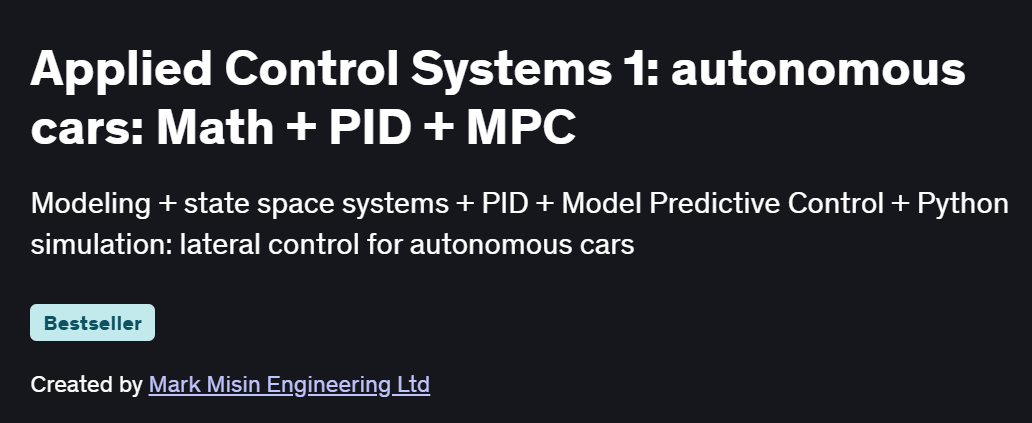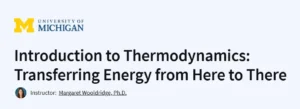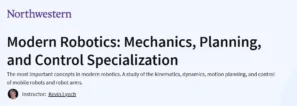What will you in Applied Control Systems 1: autonomous cars: Math + PID + MPC Course
Formulate mathematical models of dynamic systems using transfer functions and state-space
Design and tune classical PID controllers for stable, responsive system behavior
Implement model predictive control (MPC) to handle multi-variable constraints and optimize performance
Analyze system stability, time- and frequency-domain responses, and robustness margins
Simulate control strategies in MATLAB/Simulink and translate them to real-world applications
Program Overview
Module 1: Dynamic System Modelling
⏳ 45 minutes
Deriving transfer functions from first- and second-order physical systems
Building state-space representations and converting between forms
Module 2: Time- and Frequency-Domain Analysis
⏳ 1 hour
Step, impulse, and bode plot analysis for system characterization
Poles, zeros, and stability criteria (Routh, Nyquist, and root locus)
Module 3: PID Control Fundamentals
⏳ 1 hour
Proportional, integral, and derivative actions—effects on rise time, overshoot, and steady-state error
Closed-loop tuning methods: Ziegler–Nichols, Cohen–Coon, and manual tuning
Module 4: Advanced PID Implementation
⏳ 45 minutes
Anti-windup strategies, filter design, and implementation in discrete time
Handling noise, saturation, and non-ideal actuator dynamics
Module 5: Introduction to Model Predictive Control (MPC)
⏳ 1 hour
MPC theory: prediction horizon, control horizon, and cost function formulation
Constraint handling on inputs, states, and outputs
Module 6: MPC Design & Simulation
⏳ 1 hour
Setting up MPC controllers in MATLAB/Simulink with built-in toolboxes
Case studies: multivariable process, temperature control, and constrained tracking
Module 7: Robustness & Performance Evaluation
⏳ 45 minutes
Sensitivity functions, gain and phase margins, and worst-case disturbance rejection
Comparative analysis: PID vs. MPC in practical scenarios
Module 8: Real-World Applications & Code Deployment
⏳ 45 minutes
Generating C/C++ code from Simulink for embedded deployment
Hardware-in-the-loop testing and integration tips
Get certificate
Job Outlook
- Control systems expertise is essential for roles in automation, robotics, aerospace, and process industries
- High demand for engineers skilled in PID and MPC to optimize manufacturing, energy, and vehicle systems
- Opportunities as Control Engineer, Automation Specialist, and Mechatronics Engineer
- Provides a foundation for advanced careers in process control, autonomous systems, and industrial IoT
Specification: Applied Control Systems 1: autonomous cars: Math + PID + MPC
|





